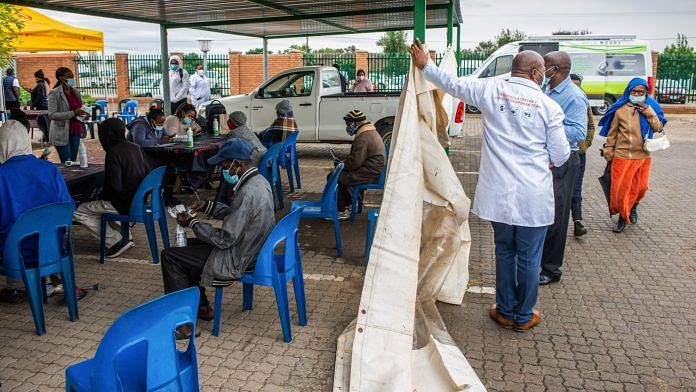
New Delhi: After what was an unprecedented deadly second wave, especially for India, coronavirus cases across the world have begun to decline as countries press the pedal on vaccination. There are currently 174,751,298 cases and 3,762,901 deaths across the globe.
We bring you some of the top stories on the pandemic from across the world.
Some African states unable to use their vaccines
Thousands of vaccine doses have been destroyed in African countries because they have exceeded their expiry dates, while others are being returned by countries saying they will be unable to use them before they expire, according to a BBC report.
Malawi destroyed almost 20,000 doses of the AstraZeneca vaccine, while South Sudan announced it would destroy 59,000 doses. The Democratic Republic of Congo said it could not use most of the 1.7 million AZ doses it received under the global Covax scheme for poorer countries.
South Africa had received 1 million doses from India in February with an expiry date of 13 April but the government decided not to use them due to concerns regarding the vaccine offering insufficient protection from the variant prevalent in the country.
South Africa has seen 1,704,058 cases, while South Sudan has seen 10,688 Covid-19 cases.
Melbourne restrictions ease, schools to reopen tomorrow
Melbourne, in Australia, is opening up and will no longer be meeting the definition of a Commonwealth hotspot, Sydney Morning Herald reported.
According to the guidelines, residents will be free to leave home for any reason but must stay within 25 kilometres of their home. Masks will not be required outdoors but must still be worn inside, including in workplaces where QR code check-ins will become mandatory.
Schools will reopen from Friday for all grade levels. Weddings will be allowed again, although attendance will be capped at 10 people, including the couple. Funerals and religious services can be held with up to 50 people attending, the new guidelines said.
Australia has seen 647,322 Covid cases and 10,647 infections.
Taiwan faces sudden Covid surge
Coronavirus cases in Taiwan have witnessed a sudden surge after 18 months, Al Jazeera reported. From just 1,200 cases among the island’s population of 23 million, the number of confirmed cases reached more than 11,000 by Tuesday and the death toll to 308.
Chen Chien-jen, Taiwan’s former vice president and health minister who made his name for effectively dealing with the SARS outbreak nearly 20 years ago, said the outbreak is partly the result of “prevention fatigue” as people let down their guard.
The country has seen 11,694 cases and 308 deaths.
Latin American community in Toronto hit hard
According to the most recent data available from the city of Toronto, Latin Americans in Canada’s largest urban area have been particularly at risk of the Covid-19 infection, Reuters reported.
As of 31 March, Latin Americans in Toronto had a Covid-19 hospitalisation rate of 307 per 100,000, almost four times higher than white people in the city. The possible reasons for the high outbreak, according to experts, is that the Latin Americans work frontline jobs, most of them live in crowded homes, use public transit and are often reluctant to seek out care — possibly because of their immigration status.
Canada has seen 1,395,410 cases and 25,791 deaths so far due to the virus.
Singapore’s toll tops SARS casualties
Singapore has reported its 34th death due to Covid-19, taking its toll from the pandemic beyond the 33 casualties recorded during the 2003 Severe Acute Respiratory Syndrome (SARS) outbreak, Reuters reported.
The country was one of the worst-hit countries by SARS outside mainland China, according to the World Health Organization’s data. So far, it has reported over 60,000 Covid-19 infections since January last year, while it recorded 238 SARS cases between March and May 2003.
The total number Covid-19 infections observed are 62,219 while 34 deaths have been reported so far.
What else are we reading:
How the ‘Alpha’ Coronavirus Variant Became So Powerful, The New York Times
Malaysia’s king will meet political leaders amid public anger over pandemic, South China Morning Post
Subscribe to our channels on YouTube & Telegram
Why news media is in crisis & How you can fix it
India needs free, fair, non-hyphenated and questioning journalism even more as it faces multiple crises.
But the news media is in a crisis of its own. There have been brutal layoffs and pay-cuts. The best of journalism is shrinking, yielding to crude prime-time spectacle.
ThePrint has the finest young reporters, columnists and editors working for it. Sustaining journalism of this quality needs smart and thinking people like you to pay for it. Whether you live in India or overseas, you can do it here.